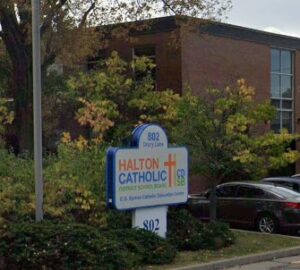Context for choosing a Chair for School Boards

TORONTO – If there is a parent still oblivious to the [inferior] quality of skills preparation offered at the school his/her child attends, it is time to wake up. High schools are beginning to “offer acceptance letters” to grade eight grads. Universities and Colleges are preparing theirs for high school grads.
In both cases, your child will come face to face with the brutal honesty expressed in the form of an acceptance or a rejection. Since no one can “fail” at the elementary level, and given that Minister Lecce wants to “de-stream”, “de-level” all high school programs, High Schools will have to “be inventive” to attract students who are essentially “self learners”, and leave the rest to their own devices.
The Corriere has been covering the performance of school boards and schools in various jurisdictions in the Greater Toronto Hamilton Niagara Area for at least four years. It has relied on the Fraser Institute Reports and on results from testing conducted by the Education Quality and Accountability Office (EQAO), in Ontario, of students in grades three, six and nine.
Not to put too fine a point on it, parents should consider suing the boards for non-performance. The differences in scores obtained by the cohort groups do not appear to vary significantly from one testing cycle to another. Parents spend thousands on individual tutoring or look to private schools to give their children improved chances at success. Some Toronto area school boards have experience record losses in school enrollments this academic year. If nothing else, that means a brutal loss of revenue – approximately $14,400 per student, when all is factored in, per year.
Senior Staff appear to focus attention on [often fabricated] “social issues” rather than on skills required for the present and future successes of their charges.
The TDSB has earned the wrath of the Jewish community for the apparent anti-Semitism of its “equity advisor’s” manifestly anti- Israel public stances last Spring.
The TCDSB is gripped by a cannibalistic movement to efface all things Catholic from the Board, including its Catechism. Its Board and Staff have absorbed, and continue to incur, legal fees approaching $2 million annually in an effort to beat down a former Chair who holds true to Catholic doctrine. That board can only exist if there is a faith connection, whether one agrees with it or not. It is in the Constitution.
One Board that seems to understand its role is the YCDSB, where, on December 2, trustees decided to reaffirm their understanding of their purpose by voting to continue to begin all meetings with a prayer – seems logical in an organization whose context for Language development, Math, Science, Social Sciences and the Technical and Cultural Arts is faith-based. Its trustees do not always agree but they make an effort to see eye-to-eye on priorities.
The HCDSB appears to go in a different direction. Like the TCDSB, they are spending tens of thousands of dollars in “dead-end” investigations and legal opinions on their behaviour at meetings, the purposes of their Board and whether a faith-based system is valid in today’s world. It suffers from poor leadership both at the institutional and the elected level. They too should read their Constitutional mandate and the voluminous Court decisions affirming that mandate or they should choose another vocation.
The ultimate slight to rationality is posed by a letter from a resident in Oakville who wrote what can only be interpreted as letter designed to sway opinion for a purpose that, out of context, has value: the election of a female (is that identification still legitimate?) to the position of Chair. About time that such choice be made, says the writer, to restore order and purpose in HCDSB.
Fine, except that he/she favours a trustee who is facing twelve charges for fraud; he/she ignores completely the only female who has expressed balance; and there has been a female Chair in eleven of the last fifteen years. The point is that, rather than seeking to divide according to rather arbitrary measurements, selection according to a program to meet student needs in the context of the Board’s mandate might be a novel way make choices.


